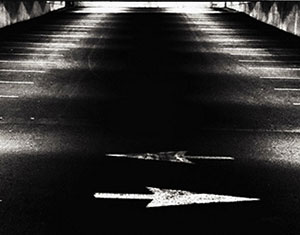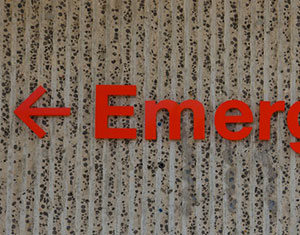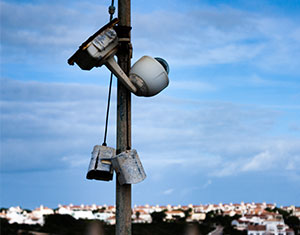Atlanta Negligent Security Attorney for Victims of Serious Injury & Wrongful Death
When injuries are sustained in a criminal attack, they are always made more serious when the cause of the incident can be attributed to the negligence of another. In so many cases, particularly in urban areas like Atlanta, many crimes that occur could have been entirely avoided if the proper security measures had been in place. Negligent security provides an easy avenue for crime to occur and for people to become victimized.
If you suspect that you or a loved one sustained serious injuries or died due to third-party negligence and inadequate security measures, the Atlanta Negligent Security Attorneys at Apolinsky & Associates, LLC, may be able to help you recover damages and compensation for your injuries. To determine if you have a legitimate legal case to recover damages for your injuries, contact our Negligent Security Law Firm in Atlanta immediately for a free case evaluation.
What is Negligent Security in Georgia?
All Georgia property owners and occupiers have a legal responsibility (O.C.G.A. §51-3-1) to provide their invitees or guests with ‘adequate’ security that meets reasonable expectations. Negligent Security occurs when a property owner fails to protect patrons, guests, or residents from a violent, criminal act that was reasonably foreseeable.
If a commercial entity fails to provide proper security, and an innocent victim is injured as a result, that property owner can be held legally liable for those injuries in civil court by filing a negligent security claim.
Common Causes of Injury Due to Negligent Security
Negligent security, also sometimes referred to as inadequate security, can take many forms and lead to many types of catastrophic injuries. Some examples include:
- A shooting at a nightclub, both inside and outdoors in the parking lot.
- A stabbing while aboard public transportation.
- An attack in a parking garage or apartment complex.
- A sexual assault at a hotel, condominium, or apartment.
- A violent assault at a mall, concert, or other place of business.
Examples of Negligent Security that Lead to Injury
Negligent security claims may be applicable when the owner of a property or management company fails to:
- Provide adequate lighting.
- Equip a building with secure locks.
- Provide video surveillance.
- Install security/automatic lighting.
- Search bags/jackets before allowing individuals to enter a property.
- Equip the building with a security guard/property manager to monitor grounds.
- Provide a fence or gated entryway.
- Otherwise fulfill their duty to provide a reasonable amount of security to prevent against violent crime.
The Atlanta negligent security attorneys at Apolinsky & Associates, LLC, can help you pursue a case to get fair and just compensation by holding the property owners or occupiers accountable.
Further Reading: Understanding Foreseeability in Negligence & Premises Liability
Proving Negligence and Causation In Georgia Negligent Security Cases
A key element of proving a negligent security case is establishing what is called reasonable foreseeability. Property owners and managers are not expected to be psychic, but where certain conditions exist, the landowner can be presumed to have reasonably foreseen the possibility of danger and the present need to improve security.
Regardless of the accident that caused you to suffer an injury, proving negligence played a factor in your case is essential to winning and getting fair compensation. In order to do so, you will need to establish that:
- A duty of care existed, and the defendant owed you a level of responsibility.
- The defendant breached the duty of care and responsibility.
- That breach directly caused your injuries.
- You suffered damages that resulted from the breach of care.
Under GA Code § 9-3-33, the statute of limitations holds that injured parties have two years to bring personal injury claims forward. After two years, a court will dismiss your claim. Oftentimes, insurance companies will engage in stalling techniques to avoid paying you anything. It is important to begin working with a personal injury attorney experienced in dealing with negligent security injury claims as soon as possible to build your case.
Further Reading: Understanding Proximate Cause in Negligence & Premises Liability
Compensation and Damages Recoverable in a Negligent Security Lawsuit in Georgia
Victims of negligent security deserve financial compensation that is equivalent to the full value of their losses. In Georgia, compensation is available for both direct economic losses and intangible (noneconomic) damages. In many cases, negligent security cases are defended by corporations or big insurance companies, which will always fight aggressively to try to limit settlement offers, reducing the amount of compensation victims can receive.
In the state of Georgia, there are no limits on damages recovered in a negligent security injury claim. Victims may seek damages for the full extent of their losses, including compensation for:
- Pain and suffering.
- Psychological injuries.
- Medical expenses.
- Lost wages.
- Property damage.
- Decreased quality of life.
If you or a loved one have been seriously injured due to negligent security in Georgia and would like to know what damages can be potentially recovered as part of your case, contact Apolinsky & Associates, LLC, for a free case evaluation.
Further Reading: What is Pain and Suffering and How Is Compensation Value Calculated?


















